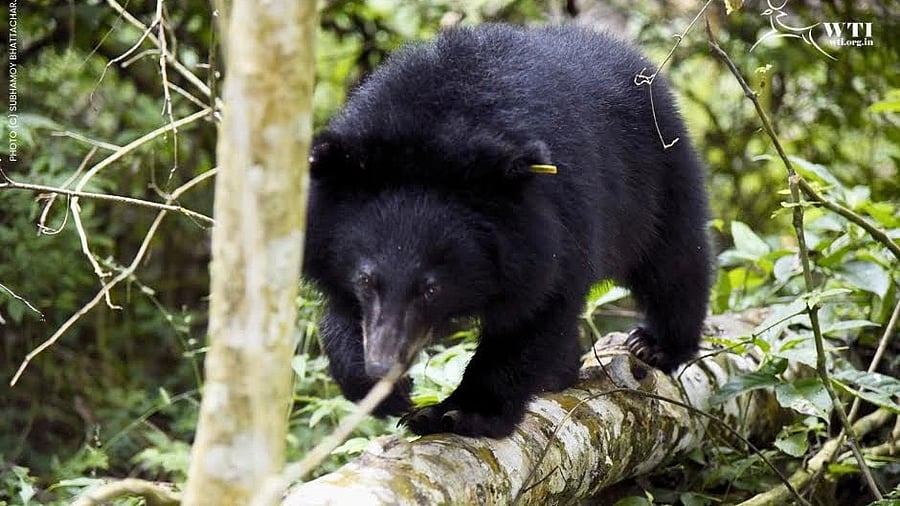
Asiatic black bear cub
Credit: Wildlife Trust of India
A centre for bear rehabilitation and conservation, set up in 2002 at Pakke Wildlife Sanctuary and Tiger Reserve in Arunachal Pradesh, has released more than 50 ‘orphaned’ cubs of Asiatic black bears back into the wild so far.
The cubs of the Asiatic black bear, a ‘vulnerable’ wildlife species, were rescued after their parents were killed by poachers in the jungles of Arunachal Pradesh.
Jointly run by the Wildlife Trust of India (WTI), the International Fund for Animal Welfare (IFAW) and the Department of Environment and Forest, Arunachal Pradesh, the Centre for Bear Rehabilitation and Conservation (CBRC) is the only facility in India dedicated to hand-raising and rehabilitating bear cubs.
An eight-month-old orphaned cub, which was rescued earlier this year at Sagalee, was released back into the wild recently after it was reared at the CBRC.
“After months of care and specialised rehabilitation provided by the dedicated team of veterinarians and keepers at the centre, the cub underwent a soft-release procedure. This process involved daily walks into the forests where the WTI-IFAW keepers guided the bear to develop essential survival skills. Over time, the cub started to exhibit signs of independence and adaptability and was deemed fit to be released,” the WTI said in a statement.
Vivek Menon, Founder and Executive Director, WTI, said, “Asiatic black bears, which inhabit the high mountains of the Himalayas, are often poached for their bile, skin and other body parts. CBRC is dedicated to rescuing and rehabilitating orphaned cubs, most of which are a result of the mother being poached. Our goal is to ensure these young bears get a second chance at a life in the wild.”
As the adult bears become targets of the poachers in the jungles of Arunachal Pradesh, the cubs become orphaned and are often rescued by local people and forest personnel. “In the past, tribe members used to raise the cubs, until the forest department stopped the practice and began sending orphaned cubs to the Itanagar Zoo to live out their lives. It wasn’t until the establishment of CBRC in 2002, that the process of rehabilitating and returning bears to the wild was undertaken in India. The project also works closely with the community to raise awareness about the issue and aims to stop the illegal hunting of the species," WTI further said.
Azzedine Downes, President and CEO of IFAW, said, “Apart from rescue and rehabilitation, the CBRC team also works closely with the community to raise awareness about the issue and aims to stop the illegal hunting of the species.”